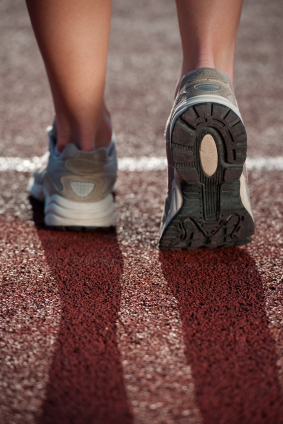With the winter sports season in full swing, the beginning of the spring sports season is just around the corner. For athletes playing both a winter and spring sport, moving from an indoor court or rink to to grass, dirt and composite surfaces means wearing different shoes, and the change in shoes and playing surface can be accompanied by heel pain, sometimes be so severe as to temporarily disable an athlete from participating in sport.
Severs Disease: signs
While heel pain can be caused by soft tissue bruising, fat pad contusion, plantar fasciitis, or Achilles tendinitis, one of the most common causes of heel pain in growing athletes between the ages 10 and 15 is Severs Disease; microtrauma at the growth plates in the bone of the heel resulting from overuse.
The signs of Severs Disease are:
- Pain in the heel or heels
- Limping while walking
- Pain upon waking up in the morning
- Pain when heel is squeezed or pressed
- Increased pain when running or after playing sports
Severs Disease: treatment
- R.I.C.E. (Rest, Ice, Compression, Elevation)

- Custom Orthotics
- Physical Therapy
- Stretching of the calves, lower limb, hamstrings, and foot
- Padded heel cups
Sever's Disease: prevention
- Maintain lower limb flexibility
- Decrease excessive running and pounding on hard surfaces
- Wear a well-fitting shoe with shock absorbing insoles or soles
Sources: http://familydoctor.org/158.xml; http://www.epodiatry.com/heel-pain-children.htm; http://www.footphysicians.com/Content.aspx?id=1483
Posted January 8, 2012








